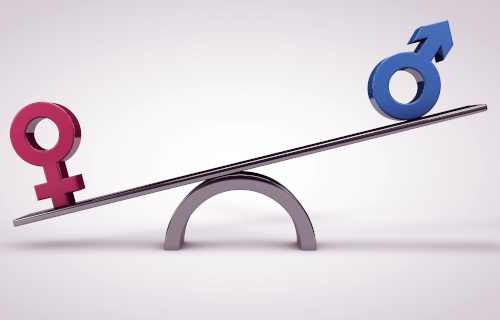Far fewer female high school graduates say they feel prepared to decide on a career path compared to male high school graduates, according to the second part of a national student survey, Post-Graduation Readiness Report Part II, with additional findings focused on disparities between male and female high school graduates.
While part I of the report from YouScience revealed that almost all high school graduates (75 percent) do not feel prepared to make college or career decisions after graduation, the newest findings reveal imbalances between male and female graduates in relation to college and career readiness. The national online survey polled more than 500 male and female high school graduates from the classes of 2019, 2020, 2021, and 2022.
The survey highlights how the lack of career exposure can lead to feelings of uncertainty for all students when it comes to post-high school readiness, however males felt more confident to make a choice after graduation simply due to being more exposed to more career options: only 41% of female high school graduates stated that they felt prepared to make a career choice or declare a major upon graduation compared to 57% of males.
Earlier research conducted by YouScience indicated a gender gap exists between male and female students in career interest. While female students possess strong aptitude for technology-based careers, their interest in those careers is low compared to those of their male counterparts. For example, female students have almost 10x the aptitude for advanced manufacturing careers than interest, while males are closer with 2x the aptitude than interest. This disparity can be partially attributed to the exposure gap – the lack of exposure or knowledge of jobs and careers – experienced by students in high school, which the latest survey data confirms.
While a career exposure gap exists among all students, male students appear to have a slight edge on their female counterparts. According to this latest research, nearly 60% of female high school graduates reported not being exposed to a wide enough variety of options for college and career versus less than 30% of males feeling the same lack of exposure. More male graduates (78%) also reported having a conversation with a teacher or school counselor about post-high school opportunities than female graduates (63%).
“There is no question that an exposure gap to potential careers exists for all students in education today. However, given that female students have great aptitude for in-demand careers — such as those in technology — we must also acknowledge and address the gap that persists between male and female students within the same schools,” said Jeri Larsen, Chief Operating Officer at YouScience. “By improving career exposure for everyone and partnering more closely with industry, we have a greater chance of solving workforce issues such as the limited pool of skilled talent. Equitable education and exposure for all students is needed now more than ever.”
Additional findings of the survey include:
Male high school graduates felt more prepared and/or confident
- 45% of males feel that they are in a job that they like or that is putting them on a good career path compared to 27% of females
- 68% of males are where they want to be in their education or career path compared to 57% of females
Female high school graduates felt less exposed to education or career options in high school
- Nearly one-third (32%) of females said they were rarely or never exposed to a variety of career options during high school compared to 22% of males
- Only 50% of females reported knowing that CTE courses were available versus 70% of males that were aware of them
Despite feeling confident and/or prepared to make educational or career choices, male high school graduates have changed their college majors more often than females
- 67% of males have changed their major since initial selection compared to 50% of females
- 59% of males have changed their major two or more times since initial selection compared to 46% of females
Related:
How to prepare students for the jobs of the future
5 skills for future success–and how to help students develop the
This press release originally appeared online.
- A look at AI use in schools across the country - November 18, 2024
- 5 ways your classroom environment boosts student engagement - November 14, 2024
- Federal toolkit targets safe, ethical AI use in classrooms - November 11, 2024


